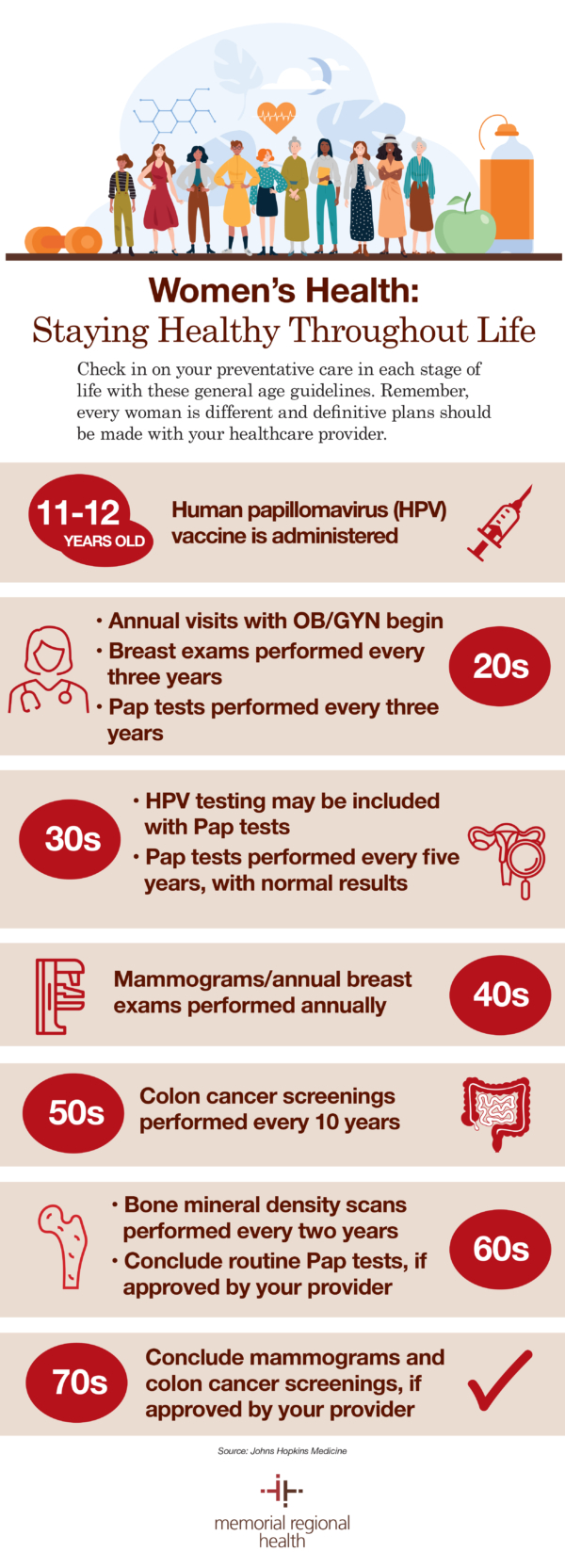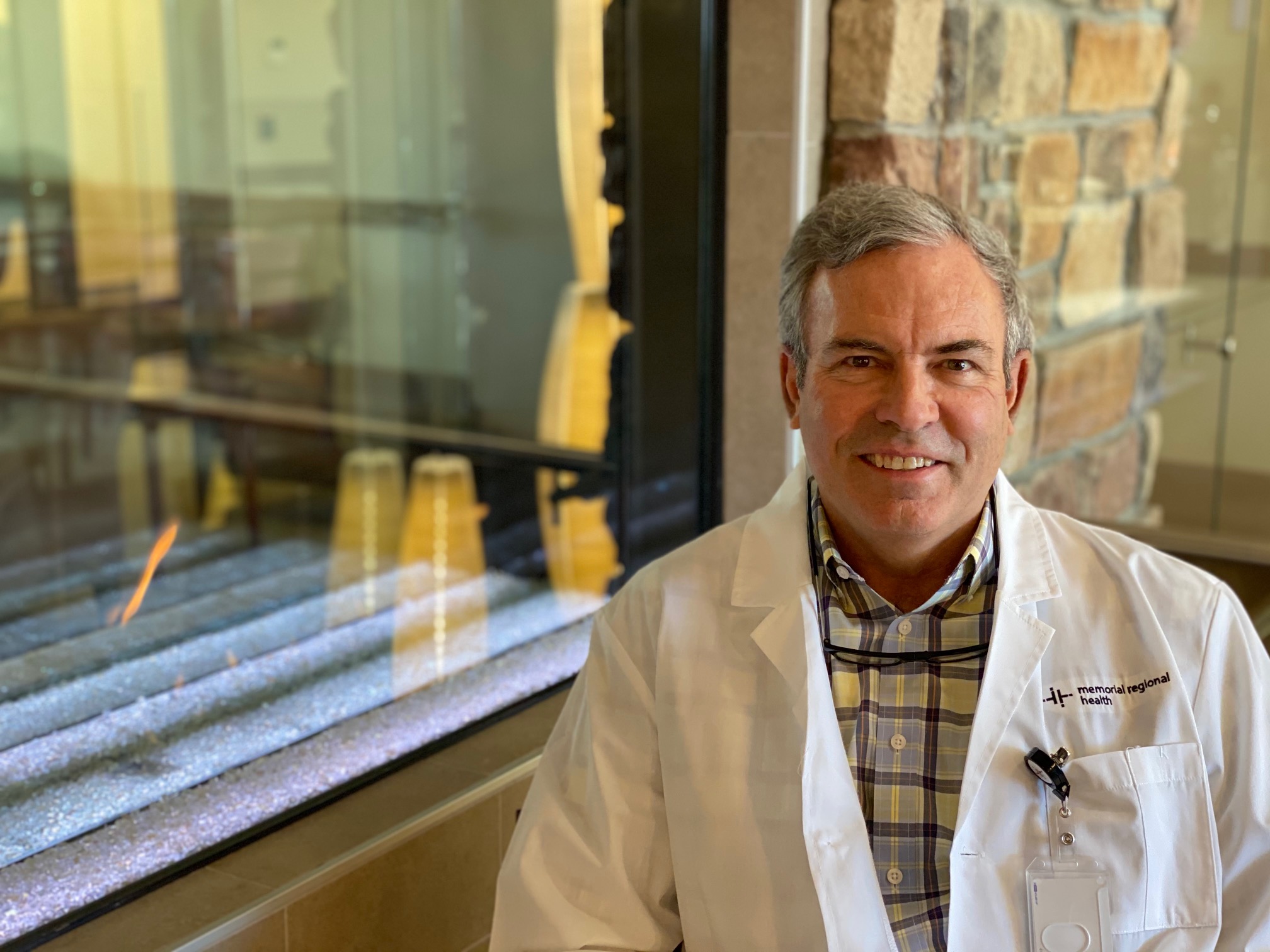Pictured: Robert Samuelson, MD
Providing Women’s Health services, including GYN, to our community
Here’s what a gynecologist does and how they play such an important role in women’s health
Be one of the first to hear about updates for local Women’s Health services by signing up for our every-other-month Living Well newsletter here.
The biggest threats to women’s health are often preventable. By taking action early and getting regular check-ups and screenings, women in our community can lead long, happy and healthy lives — especially with the help of their trusted Women’s Health provider or board-certified gynecologist.
The leading causes of death among U.S. adult women are heart disease, cancer, stroke, Alzheimer’s disease and chronic lower respiratory disease, according to the Centers for Disease Control and Prevention. The American Cancer Society lists lung, breast, colon, pancreas and ovary cancers as top cancer-related deaths in women. Through annual exams and routine cancer screenings, women can determine if they are at risk for any of these chronic conditions or types of cancers and work with their provider on a specific healthcare plan.
Robert Samuelson, MD, is the newest addition to the Memorial Regional Health Women’s Health team, offering full-scope medical and surgical gynecology care. He is board-certified by the American Board of Obstetrics and Gynecology.
“I look forward to bringing my specialized expertise to the area,” Dr. Samuelson said. “I want to minimize any disruption in a patient’s life by ensuring they don’t have to travel far to receive their healthcare.”

LOOK: An infographic displays guidelines for when women should check in on their preventative care.
When to see a gynecologist
A gynecologist (GYN) is a doctor who specializes in women’s health, specifically the female reproductive system. Girls and women can visit with a GYN at any age, but the American College of Obstetricians and Gynecologists recommends annual visits begin at 13 to 15 years old.
Gynecologists must attain a bachelor’s degree, attend medical school for at least four years and then specialize for another four years in the field of obstetrics and gynecology before they can take an exam to receive their board certification. Upon passing this test, typically administered through an examining body such as the American Board of Gynecologists, they can become associated with a professional organization like the American College of Obstetricians and Gynecologists.
Board-certified gynecologists are specifically trained to perform diagnostic and surgical procedures, such as Pap tests, ultrasound scanning, hysteroscopy, laparoscopy and many others.
Women should schedule a visit with a gynecologist for their screenings each year. They should also reach out any time they are concerned or are experiencing pelvic, vulvar and/or vaginal pain or abnormal bleeding from the uterus, according to Medical News Today.
Some conditions a gynecologist can assist patients with include:
- Issues related to pregnancy and fertility
- Family planning, including contraception and sterilization
- Menstruation and menopause issues
- Sexually transmitted infections
- Polycystic ovary syndrome
- Urinary incontinence
- Benign conditions and cancers of the reproductive tract and breasts
- Endometriosis
- Pelvic inflammatory diseases
While a family practice or primary care provider can assist patients with general women’s health issues, a gynecologist has more focused training on female organs — such as the uterus, fallopian tubes, ovaries and breasts — and related health conditions.
“The family medicine providers provide excellent women’s healthcare, but I hope to bring the surgical piece to the table assisting with operations such as hysterectomies, biopsies and incontinence procedures,” Dr. Samuelson said. “I enjoy working with patients and hope they find value in me offering my expertise to this area.”
Women’s Health at MRH
Dr. Robert Samuelson, board-certified gynecologist, visits with our Women’s Health patients here at Memorial Regional Health in Craig. He works with the MRH family practice team to provide specialized women’s healthcare services to the Moffat County community, specifically surgical care.
Services offered include:
- General women’s health services
- Hysterectomies
- Biopsies
- Incontinence procedures
- Laparoscopy
- D&C
- Endometrial ablation
- Hysteroscopy
- Tubal ligation
- Pelvic support surgery
- And more!
If you have questions or would like to schedule an appointment with Dr. Samuelson, call 970-826-2400 or learn more here.






